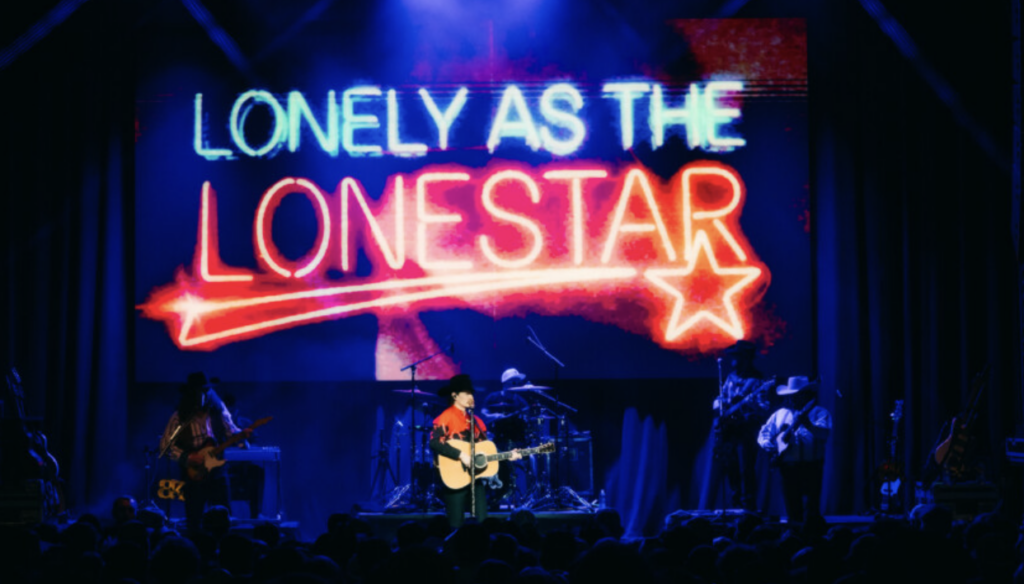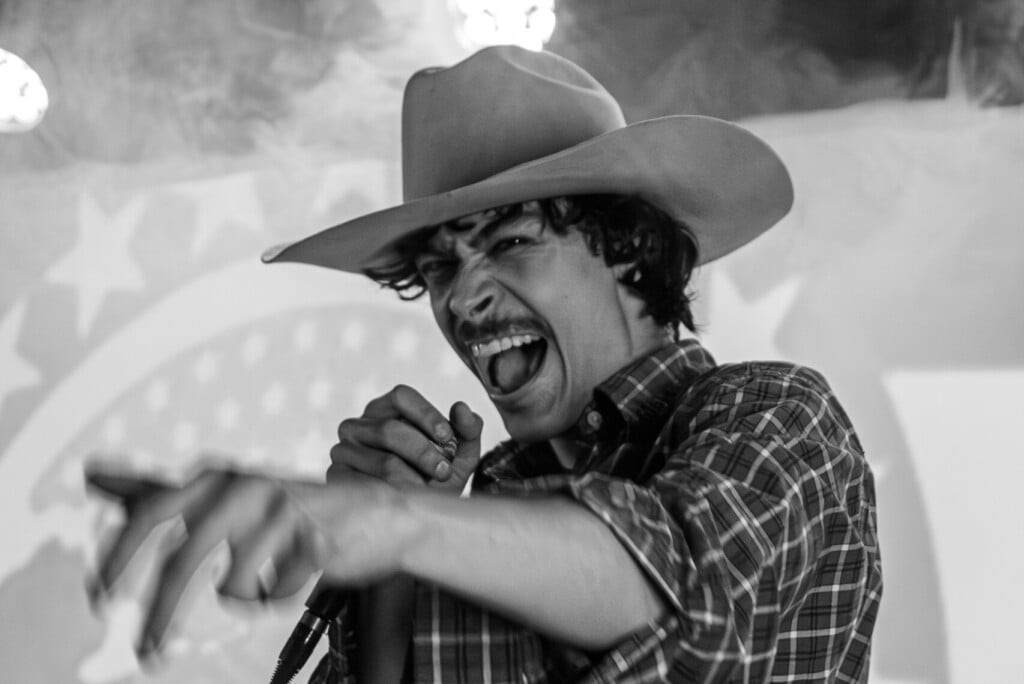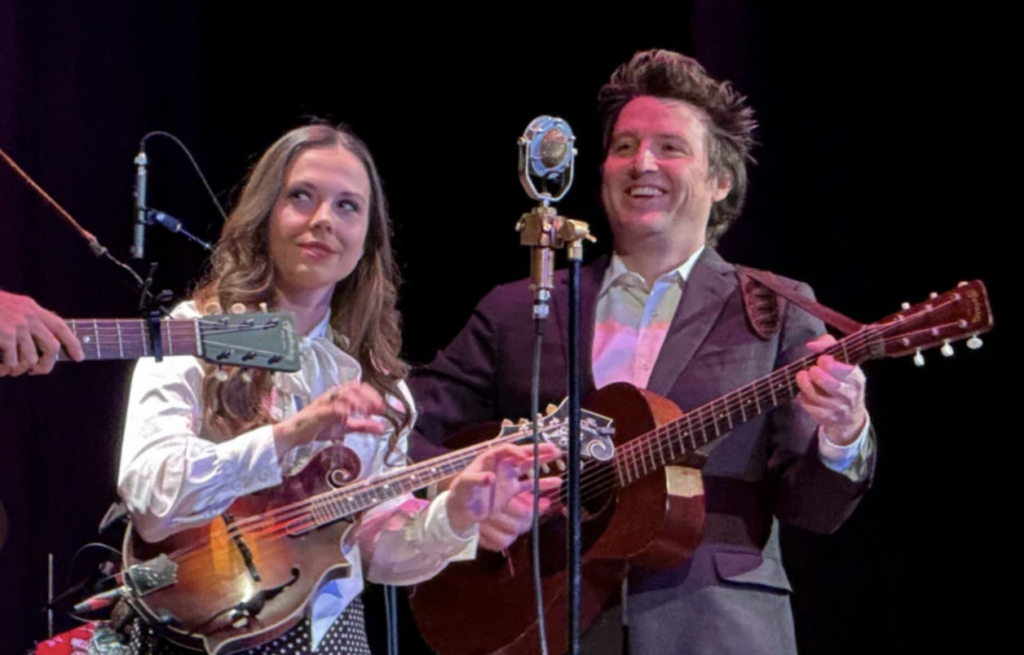Guitarist Steve Turner takes you on a Mud Ride in his new book
Were it only for his work as part of Green River, the Seattle band from which spawned iconic acts like Pearl Jam, Mudhoney, Mother Love Bone, and Temple of the Dog, guitarist Steve Turner’s legacy would be set. However, since 1988, Turner has been part of Mudhoney, whose grungy garage rock has been part of the so-called “Seattle sound” since Sub Pop became a full-time label. Their debut single, “Touch Me I’m Sick” set the template for so many bands which would follow, and the band continues to make music, having released their latest, Plastic Eternity, in April of this year.
Turner catalogs his time in Green River and Mudhoney, as well as the scene from which those bands spawned, in his new book, Mud Ride: A Messy Trip Through the Grunge Explosion, out this week from Chronicle Books. We hopped on Zoom with the guitarist and author ahead of its release to talk about the book, his record collection, and more.
The Pitch: This book tells your story, but it also tells the story of the music scene in Seattle, as well. How did it feel, once the book was done, to sit down and see your life story all at once?
Steve Turner: It was a fairly long process, so I was seeing it all the way through. What I realized when I got the advanced reader’s copies, was that I had some anxiety about it going out into the world. I didn’t want to really offend anybody in the book and that kind of thing. We were a little sensitive to it just because Mark Lanegan’s first book was such a shit show of him just blasting everybody. I was like, “Okay, I don’t wanna say anything bad about anybody in this book.”
When we came up with the idea, I knew I really wanted to focus a lot on the early-to-mid ’80s scene in Seattle that was so important to me and was the roots of the grunge explosion, too. I really wanted to have a lot of that stuff in the book, as well, ’cause that was the world I lived in.
What really appealed to me were the stories of all of these bands that most people outside of the Seattle area have likely never heard of, along with the stories of the places you went to and played. Reading the book, it felt like you were almost more excited to tell the stories of the small things, rather than the big ones.
Well, those are the influences and I think that goes for a lot. Mudhoney has a song called “I Like It Small.” The genesis of a lot of what people know of from Seattle, the grunge thing, came from was these small little shitty punk rock clubs, if you could even call some of them clubs–death traps–and that’s where I was shaped, for sure. That’s a big part of the story for me.
What was the process of putting this book together with Adem Tepedelen?
He came up with the idea. He contacted me. I knew him vaguely from back in the Seattle days. He moved to Seattle in 1990, I think. He’s a few years younger than me, but he got very excited about the Seattle scene and moved up to Seattle and was, I believe, an intern at Sub Pop. I don’t think he was a paid guy there, but he was there for a little while and then started riding for the Rocket and ended up the editor of the Rocket Magazine.
During the pandemic, I didn’t really have a whole lot going–no touring obviously. I’d never really thought too hard about writing a memoir, but we talked about it a bunch over Zoom meetings and I said if I was gonna do it, I would wanna focus on a lot of the early Seattle things and that was his point–that I lived through all the different stages of the Seattle thing.
I also wanted to focus on what it’s like as a middle-aged to–am I still middle-aged at 58? When does middle age stop?
I think until you actually hit retirement.
Okay. Well then, I’m gonna be middle-aged the rest of my life.
But I wanted to focus on the last 20 years. The after the glory days, if you will. ‘Cause that’s a huge part of my life and a lot of other people of my generation and in my world have similar stories. Hw do you balance continuing to be an artist as you get older? It’s not your paid work, necessarily, but how do you keep that passion going? How do you just keep doing it? I wanted that in the book, as well. We kind of got it into three parts: essentially everything that happened before Mudhoney, the ’90ss and the chaos there, and then after that–the kids, the marriage, the work, et cetera.
One of the things that you didn’t address in Mud Rise that I’m really curious about is the idea that old stuff becomes new again. Both Judgment Night and Singles have gotten deluxe vinyl reissues the last couple years. How does it feel when something that you contributed to 25-30 years ago gets rediscovered by a new generation or gets venerated by the generation that heard it when it came out?
Well, that’s the nature of it, you know? I mean, I’ve been a music fiend and collector all my life and I’m not so much nostalgic about what I lived through, but scenes before my time. It seems like fairly natural for the music nerds. I’m always obsessed with 1955. I wish I was there at the birth of rock and roll. 1966, I wish I was there for all the teenage garage bands and 1977, I wish I was there at the birth of punk rock.
Those are, in a nutshell, the eras I kind of obsess on. It’s natural. There’s some people that’ll just rediscover the big things like Nirvana and Pearl Jam from this era. But then there’s people that dig deeper and end up in the front row at our show or something 30 years later. And that’s great! You know, I love it. I’m all for it now. See, what I’m thinking right now is like, now I have to go on Discogs and buy a copy of the Judgment Night soundtrack.
KJHK, the college radio station here in Lawrence uses a mashup of a Teddy Ruxpin audio cassette and “Let It Slide.” What is it like as a musician when a song, be it by Green River or Mudhoney, gets licensed and put in a movie or a TV show or something like that.
The coolest example of that that I’ve had was, I think they used “Touch Me, I’m Sick” in a video game that was based in Seattle. It was one of those fighting video games, but there were TV ads for it and my kids were of the right age that they were really into video games and I was really excited cause I was like, what? I didn’t even know about it.
I’m sure I was told about it at some point, but I didn’t realize it and suddenly, there’s a TV ad for a video game with Mudhoney music going. I was like, “Well, that’s pretty cool,” ’cause my kids were like, “Oh, my god!”
The end of the book, when you talk about your record collecting, has me very curious what you’re into now. The various things you talk about, like getting into weird Mormon records and things like that just have me absolutely fascinated.
There’s not a handful of good Mormon records, but there’s one in particular that’s a Mormon children’s record that is fairly psychedelic and cool. I found more than a couple copies of it out in Boise cause I go to Boise a lot ’cause my girlfriend Andrea lives there and there’s a big Mormon population ’cause it’s the neighbor of Utah. I keep seeing these really interesting, weird Mormon folk records and they’re not very good. I wish I had someone to give them to. They just won’t be appreciated there, you know.
I still have a huge interest in old punk rock. I buy a lot of punk rock reissues now. Even the most obscure stuff gets reissued, so I’m always picking those up, if not just for the fact that I might still have an original copy of the record and if it’s been reissued, that means I can sell the original for the big bucks and just have the reissue.
And now you can play it without worrying that something’s gonna happen.
Exactly. Yeah. Some of these records are worth a lot. But yeah, I love reissues and of all sorts of genres. I mean, there’s a lot of really obscure folk and psychedelic things that are still being discovered, which is amazing that they’re still being discovered. I’m always fascinated by that. I religiously pick up Ugly Things magazine every few months when it comes out, just for the reviews of the latest reissues and whatnot. Like, “Okay, I need to get that one. I need to get that one.”
And a lot of psychedelic stuff. I mainly buy reissue records at this point in my life. There’s modern things I love. The Reigning Sound: every time they do a record, I’ve gotta grab that, ’cause they’re just so killer. The Spits: likewise. Certain things, I will pick up that are new but I’m more of a reissue guy at this point in my life.
You’ve gotten to work with some great reissue labels, yourself. Jackpot put out that collection of Green River demos.
Yeah. They’ve done a few things. They reissued the first Green River record, the Come on Down one. They issued Live At The Tropicana Olympia WA September 28, 1984. Jackpot’s such a great label. They reissuing all sorts of interesting things. I love what that label does. And the dude actually pays the bands. We get little royalty checks every few months. It’s great.
Mud Ride ends with something that seems to be as much a surprise to you as it is the reader in that there’s a new Mud Honey record. Was that a surprise–to get to like end the book with, “Hey, and we’ve got a new record now”?
Yeah, it was it was kind of interesting timing. We didn’t see each other for a year and a half during the pandemic. Once we had a couple shots in us, we started getting back together again. We had this tour that had been scheduled and rescheduled and canceled several times, and we wanted to get on that, but we wanted to get a record recorded as well.
We are definitely behind schedule for us. I mean, we don’t schedule things that concretely it seems. It seems like we put out a record every five years, which it should be more often than that, but it’s just the way it is with us. We weren’t exactly prepared for the recording process yet, but we booked the time and then just went in and tried to figure out what the record was gonna be.
Mud Ride: A Messy Trip Through the Grunge Explosion is out this week from Chronicle Books.





